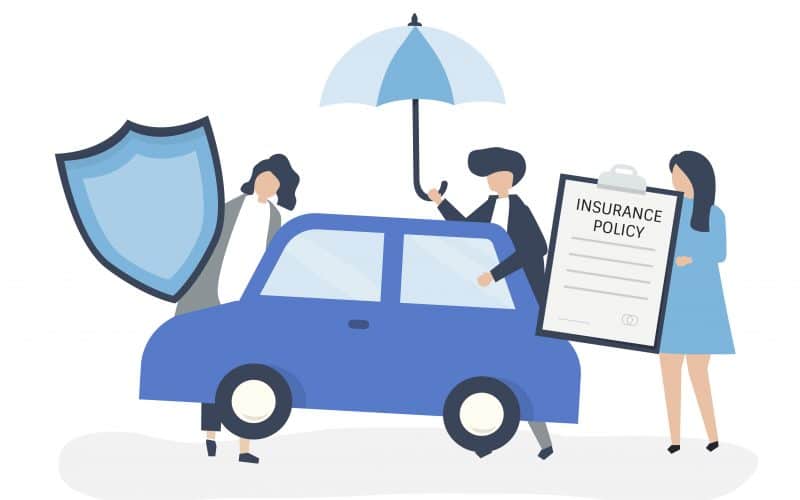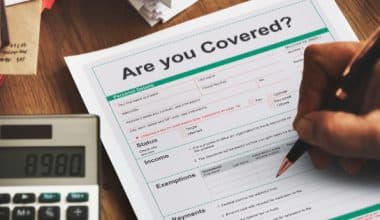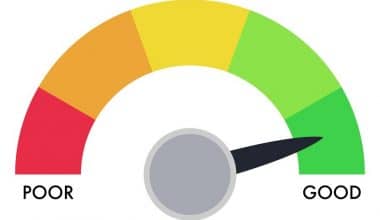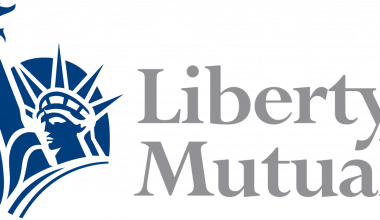If your business has an office or storefront or sells physical products, a business owner policy may be a good fit. It bundles three important types of business insurance — general liability insurance, commercial property insurance and business interruption insurance — into one policy.
BOPs are designed for businesses with fewer than 100 employees or less than $5 million in annual revenue, though not all companies are eligible. However, it may not be the only insurance policy you need, though.
You will need to buy commercial auto insurance and workers’ compensation insurance separately if you have vehicles or employees.
What is a Business Owner Policy?
A business owner policy (BOP) combines protection for all major property and liability risks in one insurance package. This type of policy assembles the basic coverages required by a business owner in one bundle. However, it is usually sold at a premium that is less than the total cost of the individual coverages.
Most small businesses need general liability insurance and commercial property insurance when they rent or own an office or other commercial space. On top of that, client contracts often require general liability coverage.
Even when coverage isn’t required, a BOP is a wise choice for small businesses that work directly with the public and own valuable business property. This policy protects against financial losses from customer accidents and incidents like fires and burglaries.
A BOP typically includes three types of insurance:
- General liability insurance.
- Business property insurance.
- Business interruption insurance.
Insurance coverages under Business Owner Policy
A business owner’s policy covers the costs of defending your business against certain lawsuits, repairing or replacing damaged property, covering medical bills for injured customers and more.
BOPs provide these protections by including the following types of insurance, which most insurance companies offer in their business owner’s policies:
General liability insurance
General liability insurance is the first line of defense for a small-business owner and is always included in a business owner’s policy. It covers the cost of defending against lawsuits alleging bodily injury, property damage or personal injury. It can also pay out to cover medical claims.
Anyone who owns a small business should have general liability insurance, or they take the risk of a lawsuit eating into their bottom line. You might even have to show proof of liability insurance when signing a contract or getting a small-business loan.
Commercial property insurance
The next main coverage in a business owner’s policy is business property insurance. Commercial property insurance can protect the building that your business is housed in and your equipment or inventory. If your property is vandalized, stolen, lost, accidentally broken or damaged by weather, commercial property insurance will pay for the property’s repair or replacement.
Any business that owns or leases commercial space should have commercial property insurance. Most landlords expect their tenants to have their own commercial property insurance. You should also have this coverage if you manufacture products, maintain inventory or keep equipment.
Business interruption insurance
Most insurance companies also include business interruption insurance in their business owner’s policies. Business interruption insurance covers lost income when your business has to temporarily slow down or stop operations after vandalism, theft or a covered disaster.
Business interruption insurance is a good idea for every business that has recurring expenses like payroll. If your business can’t generate revenue for a while, business interruption insurance will help you continue to meet your obligations.
What does a BOP cover?
A business owner’s policy (BOP) combines two types of coverage to protect your small business against a variety of claims. Its coverage components include:
- Commercial general liability insurance
- Commercial property insurance. This often includes business income and extra expense (BIEE)
The general liability portion of a BOP safeguards your business in the event someone makes a claim against you or your business. General liability insurance provides protection from liability lawsuits resulting from things like a customer slipping on a wet floor, a defective product causing damage to a client’s property, or claims that the products or services you provided caused injury.
It can also protect you from libel, slander and certain legal claims related to advertising.
The property portion of a BOP helps protect business property you own, lease or rent, including your buildings, equipment, furniture and inventory. It helps cover repair or replacement costs of stolen, damaged or destroyed property, including property that isn’t yours but was in your care.
It can also cover loss of income and covered expenses like rent, payroll and other financial responsibilities while your property is being repaired or replaced after a fire or other covered loss.
In many specialized coverages, a BOP can be tailored to the unique risks facing your business. Plus, it offers a wide variety of optional coverages that can offer additional protection. For example:
- Hired and Non-Owned Auto: This covers your business on those occasions when you rent, lease, or borrow a vehicle on a short-term basis, or when your employees use their personal vehicles for company business.
- Cyber Liability, Including Data Breach: Protects your business against the costs of data breaches and other cyber security issues.
- Crime: Protects against the costs of theft of money and securities.
- Contractor’s Equipment: Helps pay for repair or replacement of tools and equipment if they are lost, stolen, or damaged.
Who is a Business Owner Policy right for?
Any business that has assets, such as equipment or inventory, could benefit from having a BOP. A BOP also is important for anyone who has a brick-and-mortar business location.
Business owner’s policies are typically available to businesses that have less than $5 million in annual revenue and fewer than 100 employees. In general, businesses in the following industries are eligible for BOPs:
- Commercial Real Estate
- Contractors
- Financial Services
- Garages
- Healthcare
- Manufacturers
- Personal Care Services
- Pet Care Services
- Printers and Publishers
- Religious and Cultural Organizations
- Restaurant and Food Service
- Retail
- Service Businesses
- Technology Services
- Wholesalers and Distributors
In general, businesses in the following industries are not eligible for BOPs because of the additional risks they face:
- Manufacturers.
- Car dealerships.
- Bars and pubs.
- Banks and financial institutions.
- Auto repair shops.
- Amusement parks.
If you’re unsure about whether your business qualifies for a BOP, contact an insurance broker, who can help you understand what types of business insurance you need. You can also get quotes from insurance companies directly to see what coverage they offer.
How much does a Business Owner’s Policy cost?
The median cost of a business owner’s policy is $53 per month or $636 per year, according to insurance marketplace Insureon. However, how much you’ll pay for a BOP can vary depending on a variety of factors, including:
- Coverage limits: The coverage limits on your BOP directly impact the cost. Many small businesses purchase a $1 million/$2 million BOP. This means the insurer will provide $1 million in coverage per claim and $2 million aggregate over the lifetime of the policy (usually one year). However, BOPs are available with limits as low as $300,000/$600,000 and as high as $2 million/$4 million, and higher limits may be available depending on your insurance company.
- Business location and age: The geographic location of your business and your time in business will also affect cost. Newer businesses generally pay higher premiums.
- Industry: Higher-risk industries with more exposure will pay a higher premium than lower-risk industries.
- Value and type of property: For the commercial property insurance portion of your BOP, the cost depends on the type and value of the property you’re insuring. The higher the property value and the more difficult the property is to replace, the higher the cost.
- Size of business: The more employees you have, the more risk exposure you have and the more you’re likely to pay for a BOP.
- Claims history: Insurers pay careful attention to your claims history when quoting you a premium.
Adding optional coverages will increase the cost of your business owner’s policy.
Where can you purchase a BOP?
If you already have general liability insurance, property insurance or another type of coverage from a specific insurer, it’s a good idea to ask them if they offer a business owner’s policy. You may then be able to get cheaper business insurance by opting for the insurance bundle.
Dozens of companies sell business owner’s policies. We recommend getting multiple business insurance quotes to find the right fit for your business. Consider starting your search with the following:
Chubb
Chubb is one of the best small business insurance providers for customer satisfaction because it consistently ranks above the industry average in J.D. Power’s Small Commercial Insurance Study. It also has an unusually low number of complaints with state regulators for a company of its size.
The company offers a plethora of commercial insurance products and services for businesses of all sizes and across multiple industries. Though it is a major national insurer, the carrier still caters to small business owners and features a separate hub on its website just for small business insurance products.
Small business owners can purchase business owners policies, workers’ compensation insurance, liability coverage, cyber insurance, and umbrella insurance. In addition, if the business has a projected annual revenue of $2 million or less, owners can get an online quote through Chubb’s website without going through an agent.
Hiscox
A dedicated small business insurer, Hiscox offers a wide range of insurance. However, for those who want commercial property, most of its offerings are for consultants. Some types that it covers are business, education, marketing, human resources (HR), information technology (IT), and management consultancies.
Hiscox offers business owner’s policies in 43 states and Washington, D.C. You can fill out a short questionnaire about your business’s insurance needs, and then you’ll be able to get a quote and decide whether to purchase the policy.
State Farm
State Farm offers business insurance designed for independent contractors, restaurants, professional services, and retailers, with paperless billing and autopay options. Commercial insurance products include BOP bundles, surety and fidelity bonds, and farm and ranch insurance.
The carrier sells insurance policies through a nationwide network of insurance agents. You’ll need to connect with an agent before you can get a quote and purchase a policy, but talking to an agent can be helpful if you want to understand the nuances of your coverage.
Next
Next is a commercial insurance startup that sells all of its policies online. You can buy a BOP as well as other common types of coverage, like workers’ comp and professional liability insurance, from Next. Its customers can access and share their certificates of insurance digitally.
The Hartford
The Hartford’s commercial property policies are divided into two categories: small businesses with less than $200 million in total insurable value and large businesses that go over this threshold. While the essential coverage for both remains the same, each policy is tailored toward the specific needs that change based on company size.
It offers professional liability insurance as an optional coverage with its BOP. Policyholders can also tack on cyber liability insurance, which can help pay for expenses like credit monitoring services and notifying affected customers after a data breach.
Recommended Articles
- Business Insurance Quotes: Getting Insurance Quote Online
- Small Business Liability Insurance: How Does It Work?
- Commercial Auto Insurance: How Does It Work?






